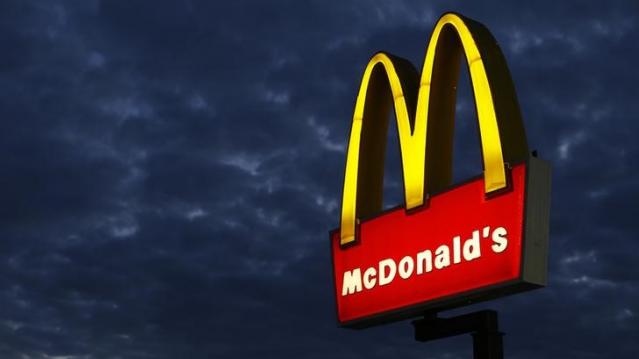McDonald’s Aims for a Classier Crowd with Lobster Rolls

As sales continue to fall, McDonald’s is desperately trying to reinvent itself, and its latest efforts seem to be aimed at a slightly classier crowd.
New England-area McDonald’s are going to start selling lobster rolls again after a 10-year hiatus, according to a report on Fox CT. No word yet on whether the old name McLobster will be revived.
The new lobster roll is reportedly made from 100 percent North Atlantic lobster, and includes mayonnaise, a bed of lettuce, and a small, toasted roll.
The meal has 290 calories and sells for $7.99.
McDonald’s introduced lobster rolls nationwide for the first time in 1993. Although the launch was a commercial disappointment, the rolls were still available seasonably in New England until 2005. Select McDonald’s restaurants in Canada also offer them for a limited time each year.
There were several reasons for the 1993 McLobster’s failure. Not only were customers wary of a “quality” seafood item served at a fast food chain, but the roll cost $5.99 (about $7.50 in 2015 dollars), a high price relative to the rest of menu.
The new lobster roll will also be expensive and doubts about the quality of its fast food continue to haunt the house that Ronald built. Given those barriers and the company’s track record, it seems unlikely that this particular crustacean-based sandwich is going to be driving a meaningful revival for McDonald’s any time soon.
Stat of the Day: 0.2%

The New York Times’ Jim Tankersley tweets: “In order to raise enough revenue to start paying down the debt, Trump would need tariffs to be ~4% of GDP. They're currently 0.2%.”
Read Tankersley’s full breakdown of why tariffs won’t come close to eliminating the deficit or paying down the national debt here.
Number of the Day: 44%

The “short-term” health plans the Trump administration is promoting as low-cost alternatives to Obamacare aren’t bound by the Affordable Care Act’s requirement to spend a substantial majority of their premium revenues on medical care. UnitedHealth is the largest seller of short-term plans, according to Axios, which provided this interesting detail on just how profitable this type of insurance can be: “United’s short-term plans paid out 44% of their premium revenues last year for medical care. ACA plans have to pay out at least 80%.”
Number of the Day: 4,229

The Washington Post’s Fact Checkers on Wednesday updated their database of false and misleading claims made by President Trump: “As of day 558, he’s made 4,229 Trumpian claims — an increase of 978 in just two months.”
The tally, which works out to an average of almost 7.6 false or misleading claims a day, includes 432 problematics statements on trade and 336 claims on taxes. “Eighty-eight times, he has made the false assertion that he passed the biggest tax cut in U.S. history,” the Post says.
Number of the Day: $3 Billion

A new analysis by the Department of Health and Human Services finds that Medicare’s prescription drug program could have saved almost $3 billion in 2016 if pharmacies dispensed generic drugs instead of their brand-name counterparts, Axios reports. “But the savings total is inflated a bit, which HHS admits, because it doesn’t include rebates that brand-name drug makers give to [pharmacy benefit managers] and health plans — and PBMs are known to play games with generic drugs to juice their profits.”
Chart of the Day: Public Spending on Job Programs

President Trump announced on Thursday the creation of a National Council for the American Worker, charged with developing “a national strategy for training and retraining workers for high-demand industries,” his daughter Ivanka wrote in The Wall Street Journal. A report from the president’s National Council on Economic Advisers earlier this week made it clear that the U.S. currently spends less public money on job programs than many other developed countries.

